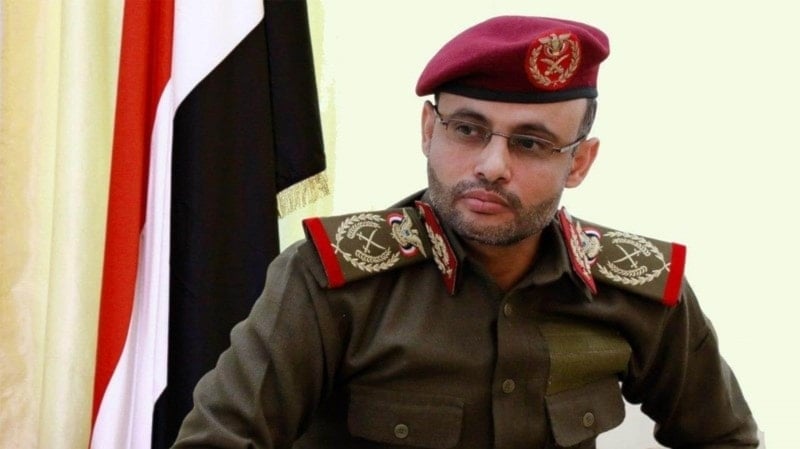Yemen will stand by Lebanon in the face of Israeli threats: Al-Mashat
The President of Yemen's Supreme Political Council Mahdi al-Mashat says that "Israel" is "still haunted by the bitterness" of its 2006 war defeat against Hezbollah.
-

The President of Yemen's Supreme Political Council Mahdi al-Mashat in an undisclosed location in Sanaa, Yemen, 2020 (Yemeni media)
The president of Yemen's Supreme Political Council in Sanaa, Mahdi al-Mashat, congratulated Lebanon on the anniversary of the 2006 war victory against "Israel", stating that "the historic victory achieved by the Islamic Resistance in Lebanon in 2006 will continue to serve as a beacon for all liberation movements."
Read more: In ceaseless operations, Hezbollah pounds the occupied North
In a statement on Wednesday, al-Mashat emphasized that the Israeli regime, "still haunted by the bitterness of defeat, is currently constrained by the balance of power and its inability to expand the scope of the war," adding that "the enemy is aware that the Islamic Resistance today is stronger than it was in the past."
The Yemeni top official also praised "the heroic actions and immense sacrifices of the Islamic Resistance in Lebanon [Hezbollah] and all the forces supporting Gaza," affirming Yemen's solidarity with Lebanon in facing the Israeli threat.
July 2006 and October 2023
After Hezbollah captured two Israeli soldiers in occupied Lebanese territory to exchange for Lebanese prisoners held by "Israel", the occupation entity launched a brutal 33-day aggression on Lebanon in July 2006, which saw aerial, naval, and ground attacks against the Lebanese people, met with fierce resistance on the part of Hezbollah and several other Lebanese Resistance factions.
Speaking to Al Mayadeen last month, Nawaf al-Mousawi, the head of Hezbollah's Resources and Borders department, stated that the events of that war proved that neither the United States nor the Israeli occupation can impose their diktats and that the peoples of the region can fight and thwart these attempts.
Read more: Hezbollah attacks Israeli sites with drones, rockets, destroys spyware
Al-Mousawi likened the operation carried out by the Islamic Resistance on July 12, 2006, to Operation Al-Aqsa Flood executed by the Palestinian Resistance on October 7, 2023.
In both cases, the Resistance took the initiative, al-Mousawi affirmed.
The war ended on August 14, 2006, after the UN Security Council adopted Resolution 1701, which called for an immediate cessation of hostilities between the Israeli occupation military and the Lebanese Resistance.
Lebanese figures estimated the number of Lebanese people killed in the 2006 Israeli attacks at nearly 1,200 martyrs and more than 4,500 injuries.
In 2008, the Winograd Commission, an Israeli government-appointed commission of inquiry, found that the 2006 war was "a seriously missed opportunity" for "Israel".
Read more: Israeli officers warn of increased threat of Radwan force incursion
"Israel initiated a long war, which ended without its clear military victory. A semi-military organization of a few thousand men resisted, for a few weeks, the strongest army in the Middle East, which enjoyed full air superiority and size and technology advantages," the commission concluded in its final report submitted to then-Israeli Prime Minister Ehud Olmert and Security Minister Ehud Barak.

 3 Min Read
3 Min Read








